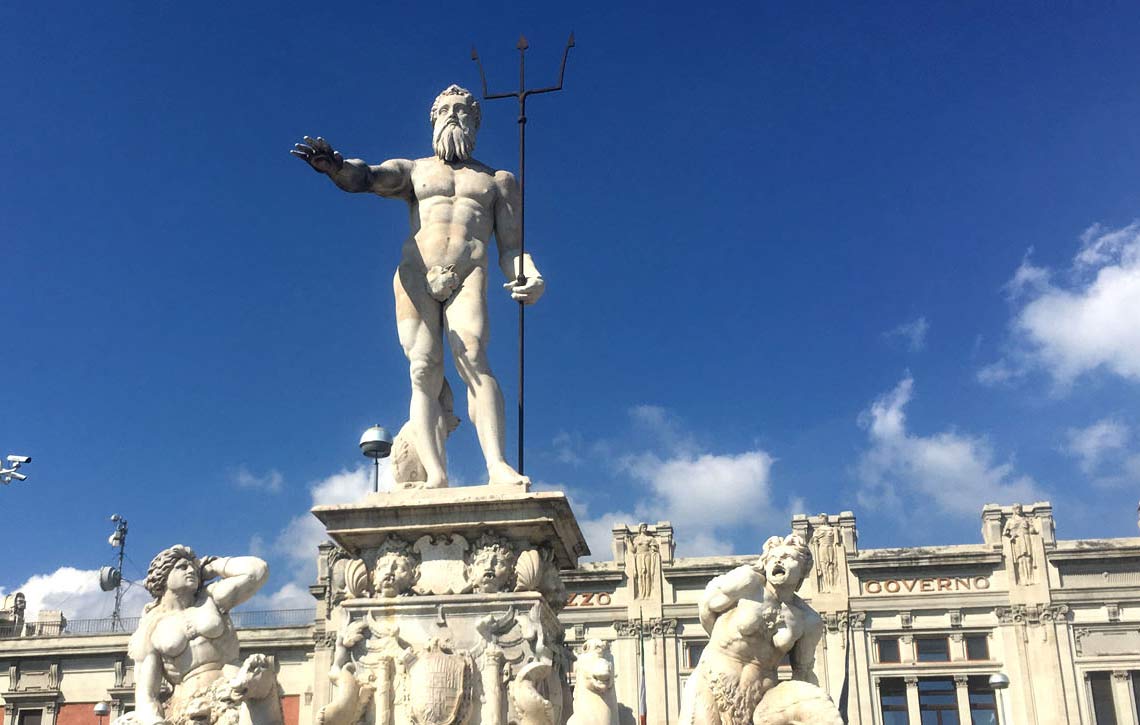In the picture
"IN THE WESTERN IMAGINATION, DISASTERS WERE SEEN AS PUNISHMENTS SENT BY GOD, WHICH COULD ONLY BE AVOIDED, OR ALLEVIATED, THROUGH THE EXTIRPATION OF SINFUL PRACTICES OR BEHAVIOUR OR THE INTERCESSION OF SAINTS.
Our ancestors did not simply observe hydro-meteorological, geological and biological phenomena, but sought to identify their direct causes, in order to foresee them and thus resist them.
However, when this was not possible, due to their limited scientific knowledge, they turned to the supernatural to satisfy their curiosity and explain their environment. They attributed to divinities or mythological beings, first, and to God, later, the cause of events that otherwise could not have been explained, and therefore could not be understood.
One example is the myths and legends surrounding the city of Messina, its sea and its land. This Italian town is the first that the traveller encounters when arriving in Sicily from the mainland. According to the ancient Messinians, the strait was populated by mythical and deadly creatures and they even believed that the city itself was founded by Poseidon, god of the sea, himself. It was logical that its inhabitants sought to establish a privileged relationship with the divinity that controlled it, and at the same time sought to ensure its protection.
It should also be borne in mind that the Romans were convinced that the prosperity of the Republic could only be guaranteed through the preservation of the Pax Deurom: the alliance between the Roman people and the divinities, which had to be renewed periodically through the celebration of cults and ceremonies.
The relationship between the Roman people and their divinities and their perceived control over the forces of nature and the planet helps to explain the hostile treatment that the Roman people initially reserved for the followers of Christ's teachings. One of the reasons that moved the authorities to persecute them was the belief that their atheism, as well as their refusal to participate in public ceremonies dedicated to the divinities, was the main cause of a series of earthquakes, epidemics, plagues, floods and military defeats that were then plaguing the Roman Empire.
finalThe affirmation of Christianity and the conversion of the Roman population, first, and of the barbarians, later, meant that in the Western imagination disasters were interpreted as punishments sent by God, which could only be avoided, or alleviated, through the extirpation of sinful practices or behaviour or the intercession of the saints.
However, it would be a mistake to consider that pagan beliefs and the divinities that played a leading role in them were forgotten by the population with Christianity. Medieval and modern culture, which owed so much to Roman culture, never completely freed itself from these beings capable of controlling the waves of the sea or lightning. They only became smaller and persisted in Mediterranean folklore.
